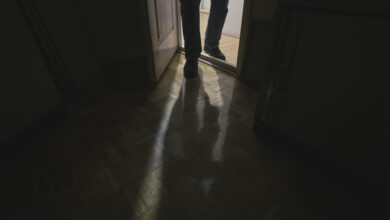Stepping out of isolation
Club motivates and empowers patients to take ownership of their care.
Garden clubs, book clubs, travel clubs and even Star Wars clubs - for as long as time people have been getting together with others who have similar interests. More recently a new kind of club has been popping up across Australia that has relevance to at least one per cent of the nation's population.
Recognising that social factors and isolation can significantly affect leg ulcer patients' response to treatment, in 1995 English district nurse Ellie Lindsay introduced the concept of community-based leg ulcer care. More than 15 years on, her idea has grown into a network of evidence-based leg ulcer clinics across the UK and Australia.
These clinics are known as Leg Clubs.
The aim of the clubs is to provide leg ulcer management in a social environment, where patients (members) are treated collectively and the emphasis is on social interaction, participation, empathy and peer support where positive health beliefs are promoted.
"Research has found that social factors and isolation can significantly affect leg ulcer patients' response to treatment," says Alicia Wooding, Blue Care Springwood Community Care Service manager.
The service is the latest to open a Leg Club, where clients come together to have their wounds dressed, receive information about health and active leg care and also have a bit of a chat and a laugh.
"We're challenging traditional nursing practices by focusing on preventative chronic disease management and educating our clients to take control of their own treatment and recognise risk factors," says Wooding.
"The members of the club really support each other which is an important part of the healing process."
Wooding says with no appointments necessary, the drop-in nature of the club's weekly meetings adds to its relaxed approach to wound care.
"We have garden clubs and book clubs - why not have leg club for older people living with a chronic leg wound."
"The club is off to a flying start with over a dozen members and we are already building community links through the local hospital and local services."
Blue Care client Yvonne Maslen has been attending the club's weekly meetings since they began.
"The nurses chat to us about wound care and in the afternoon we do activities together with a physiotherapist and the massages are great too.
"Sometimes wounds can affect your confidence however this club encourages everyone to get out of the house and feel part of the group."
The chance to enjoy a chat over scones and tea is also a plus, says Maslen.
The club is available for HACC eligible clients and costs $7 for each visit plus the cost of dressings.
For more on Leg Clubs, and how to set one up, go to www.legclub.org
Email: [email protected]





